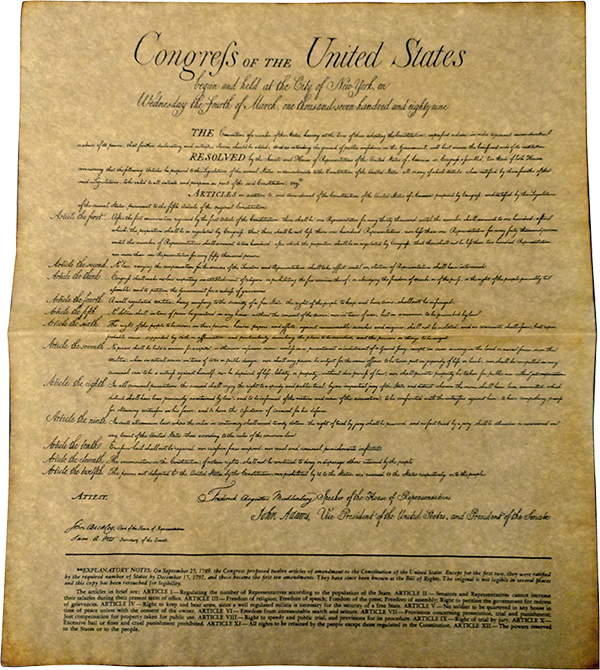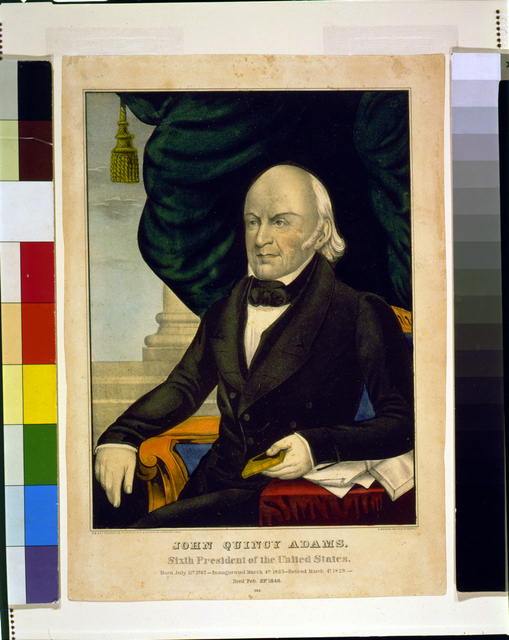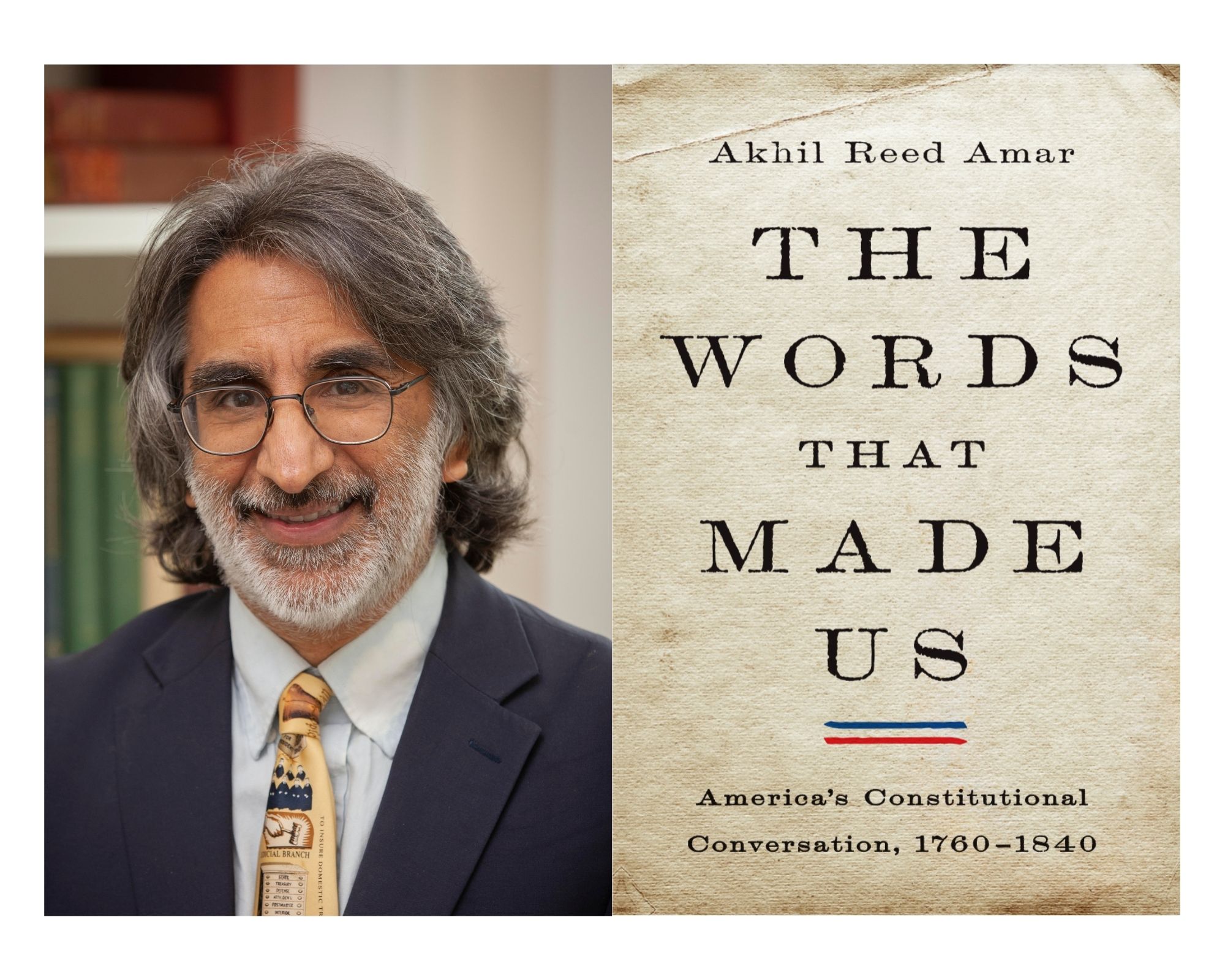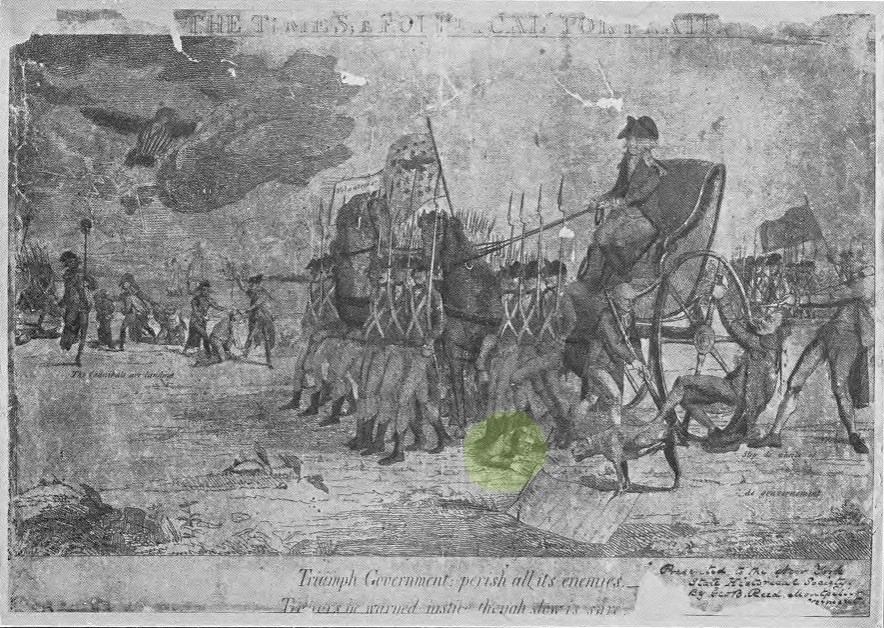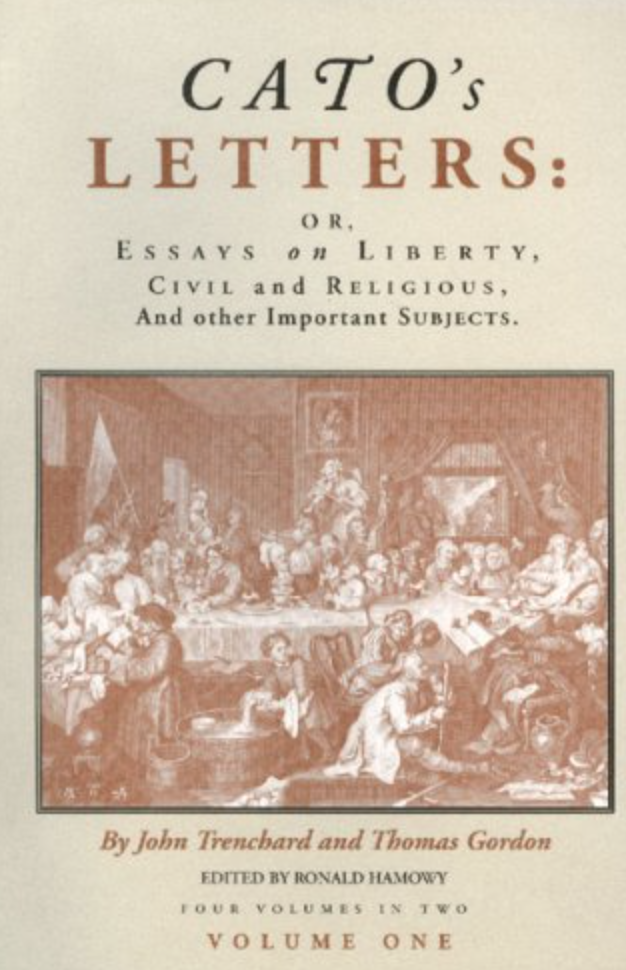By Professor Stephen D. Solomon, Editor, First Amendment Watch
The Constitution had been written and signed by the time that Thomas Jefferson and James Madison engaged in a fascinating correspondence about a bill of rights. Much of the opposition to ratification had centered around the failure of the Constitutional Convention in Philadelphia to include a bill of rights in the original document. In many of the states, ratification came only after the Anti-Federalist secured promises that the First Federal Congress would consider amendments to protect the liberty of the people.
Jefferson was a minister serving in Paris when he and Madison wrote to each other about their feelings about a bill of rights. It began on October 24, 1787, a little more than a month after the Convention ended, when Madison informed Jefferson that George Mason, a Virginia colleague, had left Philadelphia in opposition to the Constitution—“He considers the want of a Bill of Rights as a fatal objection.” Jefferson replied two months later that “a bill of rights is what the people are entitled to against every government on earth, general or particular, & what no just government should refuse or rest on inference.”
Although he later became the primary author of the Bill of Rights, Madison expressed serious doubts about the wisdom of amendments securing rights. Among other reasons, Madison believed that state bills of rights were little more than “parchment barriers” that were often ignored by “overbearing majorities in every State,” and that a federal bill of rights would fare no better. Nonetheless, Madison would secure ratification in the Virginia convention on a promise to pursue amendments in the First Federal Congress, and he made good on his word by becoming their principal author.
Links to section
James Madison to Thomas Jefferson, 24 October 1787
Thomas Jefferson to James Madison, 20 December 1787
James Madison to Thomas Jefferson, 17 October 1788
Thomas Jefferson to James Madison, 15 March 1789
Thomas Jefferson to James Madison, 28 August 1789
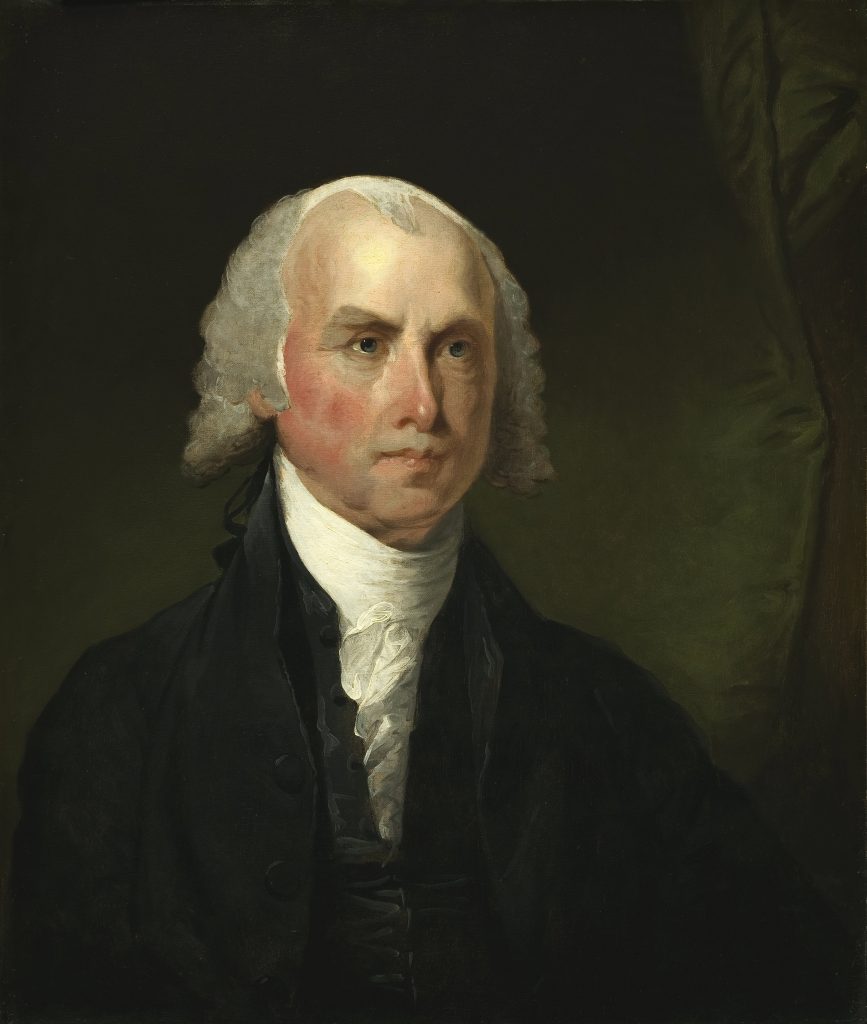
James Madison
James Madison to Thomas Jefferson, 24 October 1787
“Col. Mason left Philada. in an exceeding ill humor indeed. A number of little circumstances arising in part from the impatience which prevailed towards the close of the business, conspired to whet his acrimony. He returned to Virginia with a fixed disposition to prevent the adoption of the plan if possible. He considers the want of a Bill of Rights as a fatal objection.”1
From James Madison to Thomas Jefferson Full Letter
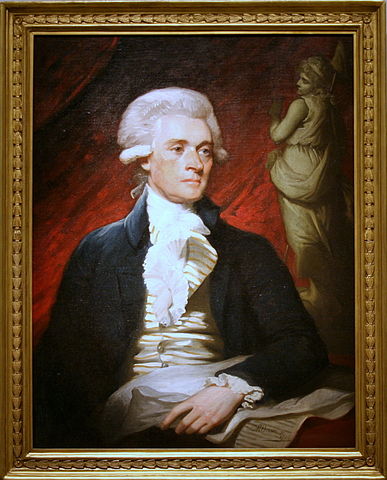
Thomas Jefferson
Thomas Jefferson to James Madison, 20 December 1787
“The season admitting only of operations in the Cabinet, and these being in a great measure secret, I have little to fill a letter. I will therefore make up the deficiency by adding a few words on the Constitution proposed by our Convention. I like much the general idea of framing a government which should go on of itself peaceably, without needing continual recurrence to the state legislatures. I like the organization of the government into Legislative, Judiciary & Executive. I like. . .
I will now add what I do not like. First the omission of a bill of rights providing clearly & without the aid of sophisms for freedom of religion, freedom of the press, protection against standing armies, restriction against monopolies, the eternal & unremitting force of the habeas corpus laws, and trials by jury in all matters of fact triable by the laws of the land & not by the law of Nations. To say, as mr. Wilson does, that a bill of rights was not necessary because all is reserved in the case of the general government which is not given, while in the particular ones all is given which is not reserved, might do for the Audience to whom it was addressed, but is surely a gratis dictum, opposed by strong inferences from the body of the instrument, as well as from the omission of the clause of our present confederation which had declared that in express terms. It was a hard conclusion to say because there has been no uniformity among the states as to the cases triable by jury, because some have been so incautious as to abandon this mode of trial, therefore the more prudent states shall be reduced to the same level of calamity. It would have been much more just & wise to have concluded the other way that as most of the states had judiciously preserved this palladium, those who had wandered should be brought back to it, and to have established general right instead of general wrong. Let me add that a bill of rights is what the people are entitled to against every government on earth, general or particular, & what no just government should refuse or rest on inference.”2
To James Madison from Thomas Jefferson Full Letter
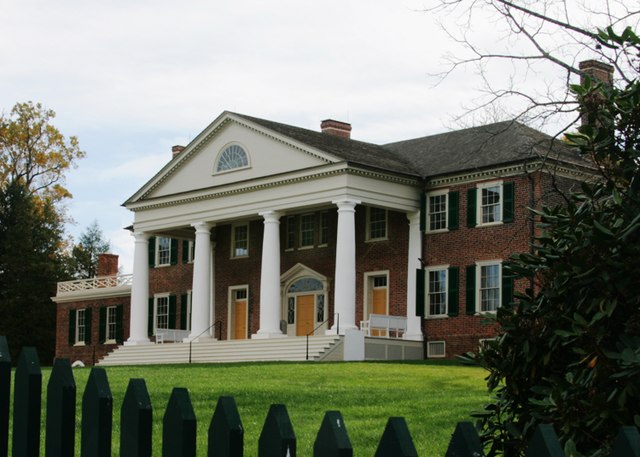
Madison’s Montpelier
James Madison to Thomas Jefferson, 17 October 1788
“The little pamphlet herewith inclosed will give you a collective view of the alterations which have been proposed for the new Constitution. … It is true nevertheless that not a few, particularly in Virginia have contended for the proposed alterations from the most honorable & patriotic motives; and that among the advocates for the Constitution, there are some who wish for further guards to public liberty & individual rights. As far as these may consist of a constitutional declaration of the most essential rights, it is probable they will be added; though there are many who think such addition unnecessary, and not a few who think it misplaced in such a Constitution. There is scarce any point on which the party in opposition is so much divided as to its importance and its propriety. My own opinion has always been in favor of a bill of rights; provided it be so framed as not to imply powers not meant to be included in the enumeration. At the same time I have never thought the omission a material defect, nor been anxious to supply it even by subsequent amendment, for any other reason than that it is anxiously desired by others. I have favored it because I supposed it might be of use, and if properly executed could not be of disservice. I have not viewed it in an important light 1. because I conceive that in a certain degree, though not in the extent argued by Mr. Wilson, the rights in question are reserved by the manner in which the federal powers are granted. 2. because there is great reason to fear that a positive declaration of some of the most essential rights could not be obtained in the requisite latitude. I am sure that the rights of Conscience in particular, if submitted to public definition would be narrowed much more than they are likely ever to be by an assumed power. One of the objections in New England was that the Constitution by prohibiting religious tests opened a door for Jews Turks & infidels. 3. because the limited powers of the federal Government and the jealousy of the subordinate Governments, afford a security which has not existed in the case of the State Governments, and exists in no other. 4 because experience proves the inefficacy of a bill of rights on those occasions when its controul is most needed. Repeated violations of these parchment barriers have been committed by overbearing majorities in every State. In Virginia I have seen the bill of rights violated in every instance where it has been opposed to a popular current. Notwithstanding the explicit provision contained in that instrument for the rights of Conscience it is well known that a religious establishment wd. have taken place in that State, if the legislative majority had found as they expected, a majority of the people in favor of the measure; and I am persuaded that if a majority of the people were now of one sect, the measure would still take place and on narrower ground than was then proposed, notwithstanding the additional obstacle which the law has since created. Wherever the real power in a Government lies, there is the danger of oppression. In our Governments the real power lies in the majority of the Community, and the invasion of private rights is cheifly to be apprehended, not from acts of Government contrary to the sense of its constituents, but from acts in which the Government is the mere instrument of the major number of the constituents. This is a truth of great importance, but not yet sufficiently attended to: and is probably more strongly impressed on my mind by facts, and reflections suggested by them, than on yours which has contemplated abuses of power issuing from a very different quarter. Wherever there is an interest and power to do wrong, wrong will generally be done, and not less readily by a powerful & interested party than by a powerful and interested prince. The difference, so far as it relates to the superiority of republics over monarchies, lies in the less degree of probability that interest may prompt abuses of power in the former than in the latter; and in the security in the former agst. oppression of more than the smaller part of the society, whereas in the former it may be extended in a manner to the whole. The difference so far as it relates to the point in question—the efficacy of a bill of rights in controuling abuses of power—lies in this, that in a monarchy the latent force of the nation is superior to that of the sovereign, and a solemn charter of popular rights must have a great effect, as a standard for trying the validity of public acts, and a signal for rousing & uniting the superior force of the community; whereas in a popular Government, the political and physical power may be considered as vested in the same hands, that is in a majority of the people, and consequently the tyrannical will of the sovereign is not [to] be controuled by the dread of an appeal to any other force within the community. What use then it may be asked can a bill of rights serve in popular Governments? I answer the two following which though less essential than in other Governments, sufficiently recommend the precaution. 1. The political truths declared in that solemn manner acquire by degrees the character of fundamental maxims of free Government, and as they become incorporated with the national sentiment, counteract the impulses of interest and passion. 2. Altho’ it be generally true as above stated that the danger of oppression lies in the interested majorities of the people rather than in usurped acts of the Government, yet there may be occasions on which the evil may spring from the latter sources; and on such, a bill of rights will be a good ground for an appeal to the sense of the community. Perhaps too there may be a certain degree of danger, that a succession of artful and ambitious rulers, may by gradual & well-timed advances, finally erect an independent Government on the subversion of liberty. Should this danger exist at all, it is prudent to guard agst. it, especially when the precaution can do no injury. At the same time I must own that I see no tendency in our governments to danger on that side. It has been remarked that there is a tendency in all Governments to an augmentation of power at the expence of liberty. But the remark as usually understood does not appear to me well founded. Power when it has attained a certain degree of energy and independence goes on generally to further degrees. But when below that degree, the direct tendency is to further degrees of relaxation, until the abuses of liberty beget a sudden transition to an undue degree of power. With this explanation the remark may be true; and in the latter sense only is it in my opinion applicable to the Governments in America. It is a melancholy reflection that liberty should be equally exposed to danger whether the Government have too much or too little power, and that the line which divides these extremes should be so inaccurately defined by experience.
Supposing a bill of rights to be proper the articles which ought to compose it, admit of much discussion. I am inclined to think that absolute restrictions in cases that are doubtful, or where emergencies may overrule them, ought to be avoided. The restrictions however strongly marked on paper will never be regarded when opposed to the decided sense of the public; and after repeated violations in extraordinary cases, they will lose even their ordinary efficacy. Should a Rebellion or insurrection alarm the people as well as the Government, and a suspension of the Hab. Corp. be dictated by the alarm, no written prohibitions on earth would prevent the measure. Should an army in time of peace be gradually established in our neighbourhood by Britn: or Spain, declarations on paper would have as little effect in preventing a standing force for the public safety. The best security agst. these evils is to remove the pretext for them.”3
From James Madison to Thomas Jefferson Full Letter
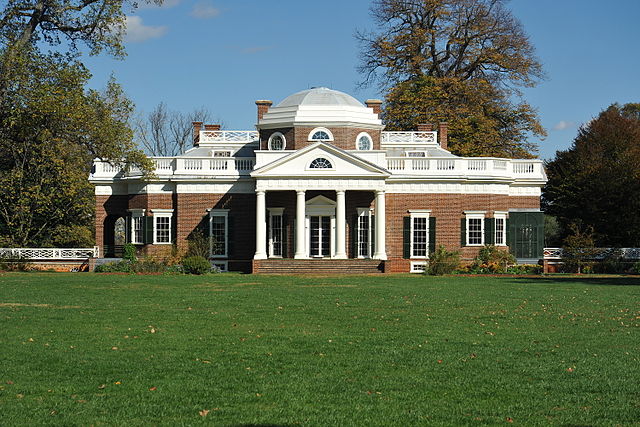 Thomas Jefferson to James Madison, 15 March 1789
Thomas Jefferson to James Madison, 15 March 1789
“Your thoughts on the subject of the Declaration of rights in the letter of Oct. 17. I have weighed with great satisfaction. Some of them had not occurred to me before, but were acknowleged just in the moment they were presented to my mind. In the arguments in favor of a declaration of rights, you omit one which has great weight with me, the legal check which it puts into the hands of the judiciary. This is a body, which if rendered independent, and kept strictly to their own department merits great confidence for their learning and integrity. In fact what degree of confidence would be too much for a body composed of such men as Wythe, Blair, and Pendleton? On characters like these the ‘civium ardor prava jubentium’ would make no impression. I am happy to find that on the whole you are a friend to this amendment. The Declaration of rights is like all other human blessings alloyed with some inconveniences, and not accomplishing fully it’s object. But the good in this instance vastly overweighs the evil. I cannot refrain from making short answers to the objections which your letter states to have been raised. 1. That the rights in question are reserved by the manner in which the federal powers are granted. Answer. A constitutive act may certainly be so formed as to need no declaration of rights. The act itself has the force of a declaration as far as it goes: and if it goes to all material points nothing more is wanting. In the draught of a constitution which I had once a thought of proposing in Virginia, and printed afterwards, I endeavored to reach all the great objects of public liberty, and did not mean to add a declaration of rights. Probably the object was imperfectly executed: but the deficiencies would have been supplied by others in the course of discussion. But in a constitutive act which leaves some precious articles unnoticed, and raises implications against others, a declaration of rights becomes necessary by way of supplement. This is the case of our new federal constitution. This instrument forms us into one state as to certain objects, and gives us a legislative and executive body for these objects. It should therefore guard us against their abuses of power within the feild submitted to them. 2. A positive declaration of some essential rights could not be obtained in the requisite latitude. Answer. Half a loaf is better than no bread. If we cannot secure all our rights, let us secure what we can. 3. The limited powers of the federal government and jealousy of the subordinate governments afford a security which exists in no other instance. Answer. The first member of this seems resolvable into the 1st. objection before stated. The jealousy of the subordinate governments is a precious reliance. But observe that those governments are only agents. They must have principles furnished them whereon to found their opposition. The declaration of rights will be the text whereby they will try all the acts of the federal government. In this view it is necessary to the federal government also: as by the same text they may try the opposition of the subordinate governments. 4. Experience proves the inefficacy of a bill of rights. True. But tho it is not absolutely efficacious under all circumstances, it is of great potency always, and rarely inefficacious. A brace the more will often keep up the building which would have fallen with that brace the less. There is a remarkeable difference between the characters of the Inconveniencies which attend a Declaration of rights, and those which attend the want of it. The inconveniences of the Declaration are that it may cramp government in it’s useful exertions. But the evil of this is shortlived, moderate, and reparable. The inconveniencies of the want of a Declaration are permanent, afflicting and irreparable: they are in constant progression from bad to worse. The executive in our governments is not the sole, it is scarcely the principal object of my jealousy. The tyranny of the legislatures is the most formidable dread at present, and will be for long years. That of the executive will come in it’s turn, but it will be at a remote period. I know there are some among us who would now establish a monarchy. But they are inconsiderable in number and weight of character. The rising race are all republicans. We were educated in royalism: no wonder if some of us retain that idolatry still. Our young people are educated in republicanism. An apostacy from that to royalism is unprecedented and impossible. I am much pleased with the prospect that a declaration of rights will be added: and hope it will be done in that way which will not endanger the whole frame of the government, or any essential part of it.”4
From Thomas Jefferson to James Madison Full Letter
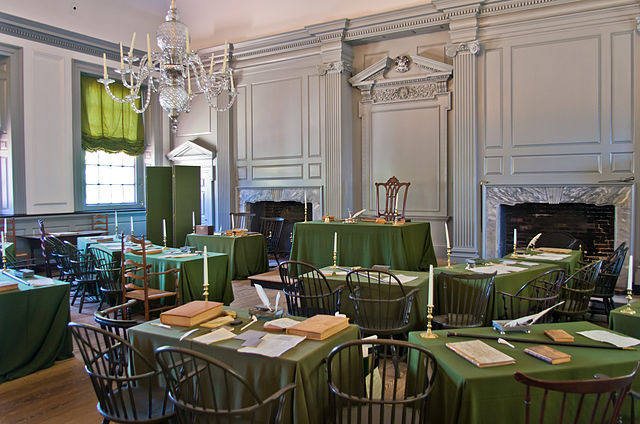
Independence Hall’s Assembly Room, where both the Constitution and Declaration of Independence were debated and signed.
Thomas Jefferson to James Madison, 28 August 1789
“I must now say a word on the declaration of rights you have been so good as to send me. I like it as far as it goes; but I should have been for going further. For instance the following alterations and additions would have pleased me. Art. 4. ‘The people shall not be deprived or abridged of their right to speak to write or otherwise to publish any thing but false facts affecting injuriously the life, liberty, property, or reputation of others or affecting the peace of the confederacy with foreign nations.”5
From Thomas Jefferson to James Madison Full Letter
1 Original source: The Papers of James Madison, vol. 10, 27 May 1787–3 March 1788, ed. Robert A. Rutland, Charles F. Hobson, William M. E. Rachal, and Frederika J. Teute. Chicago: The University of Chicago Press, 1977, pp. 205–220.
2 Original source: The Papers of James Madison, vol. 10, 27 May 1787–3 March 1788, ed. Robert A. Rutland, Charles F. Hobson, William M. E. Rachal, and Frederika J. Teute. Chicago: The University of Chicago Press, 1977, pp. 335–
3 Original source: The Papers of James Madison, vol. 11, 7 March 1788–1 March 1789, ed. Robert A. Rutland and Charles F. Hobson. Charlottesville: University Press of Virginia, 1977, pp. 295–300
4 Original source: The Papers of Thomas Jefferson, vol. 14, 8 October 1788 – 26 March 1789, ed. Julian P. Boyd. Princeton: Princeton University Press, 1958, pp. 659–663
5 Original source: The Papers of Thomas Jefferson, vol. 15, 27 March 1789 – 30 November 1789, ed. Julian P. Boyd. Princeton: Princeton University Press, 1958, pp. 364–369
Tags
